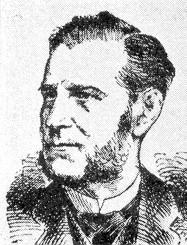Planning worship?
Check out our sister site, ZeteoSearch.org,
for 20+ additional resources related to your search.
- |
User Links
Person Results
Hugh Wilson
1766 - 1824 Person Name: Hugh Wilson, 1766-1824 Composer of "MARTYRDOM" in The Beacon Song and Service book Hugh Wilson (b. Fenwick, Ayrshire, Scotland, c. 1766; d. Duntocher, Scotland, 1824) learned the shoemaker trade from his father. He also studied music and mathematics and became proficient enough in various subjects to become a part-time teacher to the villagers. Around 1800, he moved to Pollokshaws to work in the cotton mills and later moved to Duntocher, where he became a draftsman in the local mill. He also made sundials and composed hymn tunes as a hobby. Wilson was a member of the Secession Church, which had separated from the Church of Scotland. He served as a manager and precentor in the church in Duntocher and helped found its first Sunday school. It is thought that he composed and adapted a number of psalm tunes, but only two have survived because he gave instructions shortly before his death that all his music manuscripts were to be destroyed.
Bert Polman
Hugh Wilson
John Bacchus Dykes

1823 - 1876 Person Name: John B. Dykes Composer of "ST. AGNES" in A. M. E. C. Hymnal As a young child John Bacchus Dykes (b. Kingston-upon-Hull' England, 1823; d. Ticehurst, Sussex, England, 1876) took violin and piano lessons. At the age of ten he became the organist of St. John's in Hull, where his grandfather was vicar. After receiving a classics degree from St. Catherine College, Cambridge, England, he was ordained in the Church of England in 1847. In 1849 he became the precentor and choir director at Durham Cathedral, where he introduced reforms in the choir by insisting on consistent attendance, increasing rehearsals, and initiating music festivals. He served the parish of St. Oswald in Durham from 1862 until the year of his death. To the chagrin of his bishop, Dykes favored the high church practices associated with the Oxford Movement (choir robes, incense, and the like). A number of his three hundred hymn tunes are still respected as durable examples of Victorian hymnody. Most of his tunes were first published in Chope's Congregational Hymn and Tune Book (1857) and in early editions of the famous British hymnal, Hymns Ancient and Modern.
Bert Polman
John Bacchus Dykes
Robert Archibald Smith
1780 - 1829 Person Name: R. A. Smith Adapter of "MARTYRDOM" in The Beacon Song and Service book Although largely self-taught, Robert A. Smith (b. Reading, Berkshire, England, 1780; d. Edinburgh, Scotland, 1829) was an excellent musician. By the age of ten he played the violin, cello, and flute, and was a church chorister. From 1802 to 1817 he taught music in Paisley and was precentor at the Abbey; from 1823 until his death he was precentor and choirmaster in St. George's Church, Edinburgh. He enlarged the repertoire of tunes for psalm singing in Scotland, raised the precentor skills to a fine art, and greatly improved the singing of the church choirs he directed. Smith published his church music in Sacred Harmony (1820, 1825) and compiled a six-volume collection of Scottish songs, The Scottish Minstrel (1820-1824).
Bert Polman
Robert Archibald Smith
John Haynes Holmes

1879 - 1964 Author of "O God, whose smile is in the sky" in The Beacon Song and Service book Born: November 29, 1879, Philadelphia, Pennsylvania.
Died: April 3, 1964, New York City.
Buried: Community Church of New York Unitarian Universalist, New York City.
Holmes graduated from Harvard University, Phi Beta Kappa. His grandfather, John Cummings Haynes, manager of the Oliver Ditson music publishing house, helped pay his Harvard tuition. Holmes was ordained in 1904, and became minister of the Unitarian Third Congregational Church, Dorchester, Massachusetts. In February 1907, he became junior minister at the Church of the Messiah in New York City. His works include:
I Speak for Myself, 1959
Collected Hymns, 1960
--www.hymntime.com/tch/
John Haynes Holmes
Daniel Hughes
Person Name: D. H. Translator of "O Dduw, dy wên sydd yn y nen (O God, whose smile is in the sky)" in Mawl a chân = praise and song
Daniel Hughes
Henry Hiles

1826 - 1904 Composer of "ST. LEONARD" in Isles of Shoals Hymn Book and Candle Light Service Born: December 31, 1826, Shrewsbury, England.
Died: October 20, 1904, Worthing, England.
Hiles was educated at Oxford (BMus 1862, DMus 1867). He played the organ at Shrewsbury, as his brother’s deputy (1846); Bishopwearmouth (1847); St. Michael’s, Wood Street (1859); the Blind Asylum, Manchester (1859); Bowden (1861); and St. Paul’s, Manchester (1863-67). He lectured in harmony and composition at Owen’s College in Manchester (1867) and Victoria University (1879), and was Professor at the Manchester College of Music (1893). He also conducted musical societies in Lancashire and Yorkshire, and owned and edited the Quarterly Music Review (1885-88). He retired in 1904, moving to Pinner, near Harrow. His works include:
Twelve Tunes to Original or Favourite Hymns, 1867
Harmony of Sounds, three editions: 1871, 1872, 1879
Wesley Tune Book, 1872 (editor)
Grammar of Music, 1879
First Lessons in Singing (Manchester: Hime & Addison, 1881)
Part Writing or Modern Counterpoint (Novello: 1884)
Harmony or Counterpoint, 1889
Harmony, Choral or Counterpun
--www.hymntime.com/tch/
Henry Hiles
Josiah Booth
1852 - 1930 Person Name: Josiah Booth, 1852-1929 Composer of "DENNY" in The Cyber Hymnal Josiah Booth (27 March 1852 – 29 December 1929) was an English organist and composer, known chiefly for his hymn-tunes.
See also in:
Wikipedia
Josiah Booth


 My Starred Hymns
My Starred Hymns


